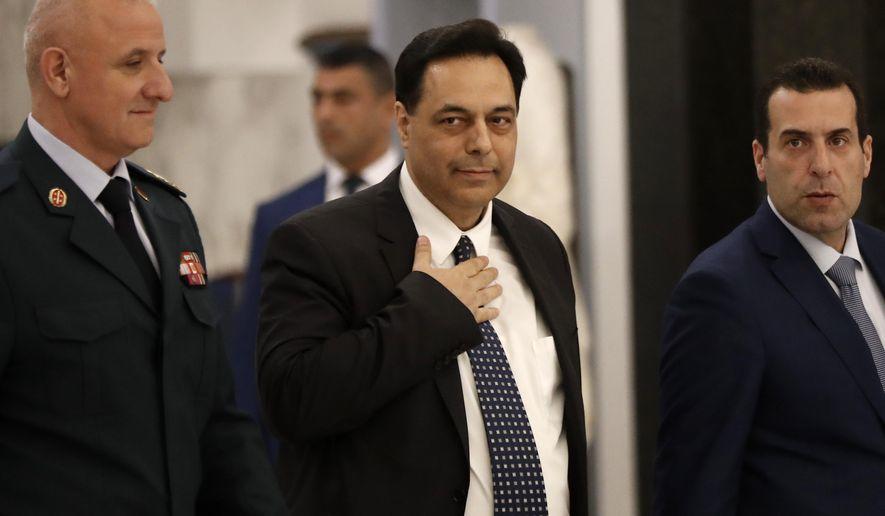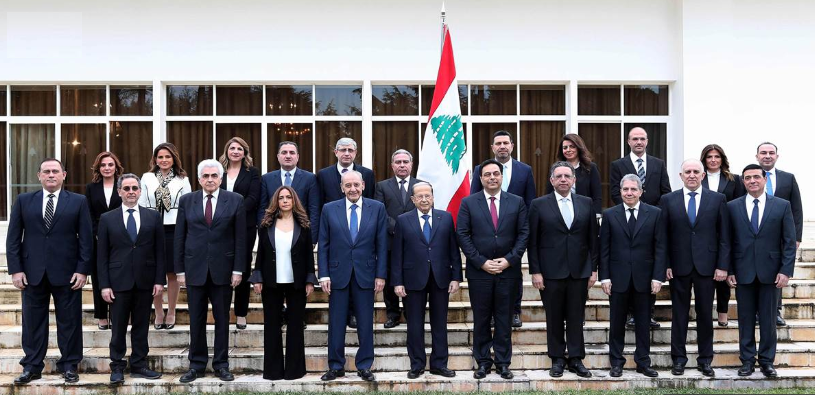Lebanon’s New Hezbollah-Backed Government Meets After 3-Month Vacuum Amid Crisis
After in October Lebanese Prime Minister Saad al-Hariri resigned amid worsening violence and protests related to the nation’s banking crisis, but remained in a caretaker capacity, Lebanon announced Tuesday the formation of a new government, which met for the first time Wednesday. The crisis-hit country has been three months without a government.
President Michel Aoun said it’s vital the new government led by caretaker Prime Minister Hassan Diab wins back international confidence at a moment Lebanon is on the verge of deft default and currency devaluation. The new leaders will attempt to instill enough faith to unlock crucial external funding, conditioned on badly needed reforms which have thus far remained elusive.

“Your mission is delicate,” Aoun told the cabinet in a statement. “It is necessary to work to tackle the economic situation, restore the confidence of the international community in Lebanese institutions and reassure the Lebanese about their future,” Aoun said.
Caretaker PM Diab, formerly the education minister and importantly the candidate put forward by Hezbollah, has unveiled a plan for a new election law meant to promote national unity and placate key demands of protesters after demonstrations have raged for months, at times bringing daily life in the major cities, especially Beirut, to a standstill. This also as a liquidity crisis has resulted in strict capital controls imposed on banks, which has also lately seen account holders limited to withdrawing a mere $200 a week.
It’s now been over two months since commercial banks have enacted severe controls preventing large money transfers abroad and restricting clients’ access to their deposits. Throughout the nationwide protests, which at their height saw one million people hit the streets (a whopping some 20% of the entire population), both national and commercial banks have been routinely targeted for destruction and vandalism.
The new government includes Minister of Defense Zeina ‘Akkar, Minister of Foreign Affairs Nassif Hatti, Minister of Finance Ghazi Wazneh and Minister of Interior Mohammad Fahmi.

Lebanon’s precarious financial situation has many investors pricing in a sovereign default. A $1.2 billion Eurobond that matures in March saw a record slump last week, fueled by reports local lenders have been selling the instruments to avoid participating in a central bank-initiated voluntary debt swap.
The Lebanese pound has plunged on the black market to some 2,500 against the U.S. dollar since the protests began on Oct. 17, while the central bank has stuck to the official rate of 1,507. Hours before the government was announced, Lebanon’s money changers announced that they would sell dollars at no more than 2,000 starting Thursday in an effort to ease the burden of price gains on consumers. — Bloomberg
PM Diab acknowledged the tumultuous events gripping the small Middle East nation in initial remarks Wednesday: “I salute the uprising that pushed us towards this path. Lebanon won an this government expresses the aspirations of the protesters over the area and country. We will work to fulfill your demands,” he said.
“The scenes that we saw during the past few days were painful and what is important now is to maintain stability and support the Lebanese Army and security forces,” Diab continued. “We have the capabilities to continue. We have our wealth. We will protect it and defend our right to it by all means,” he added.
Diab indicated just after taking the helm that he intends as his first trip abroad a visit to Gulf states which previously provided vital financial aid.
However, the prospect for Gulf aid could be sensitive, given the new government is for the first time controlled exclusively by Hezbollah (which notably has the backing of Iran), while Lebanese political parties that typically enjoy Western backing have stayed on the sidelines. All of this also means protests are set to continue, and possibly grow more fierce, as promised by a number of activists.
Tyler Durden
Wed, 01/22/2020 – 13:10
via ZeroHedge News https://ift.tt/2urtj7K Tyler Durden